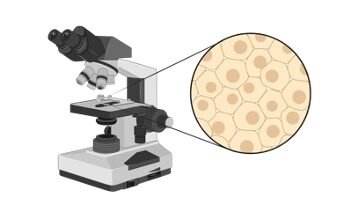Table of Contents
Mesentery Definition
Mesentery envelops the organs of the gut and helps in their suspension from the abdominal wall. They are comprised of mesodermal cells that are derived from the middle layer of the 3 germ layers.
It surrounds all internal organs as it forms the peritoneum. This layer folds over itself in the gut, and aids in providing attachments for internal organs. The mesentery was earlier thought to be comprised of different tissue associated with mesocolon.
Recently it was discovered to be a single organ that aids in the suspension of organs in the abdominal cavity and facilitates the supply of vessels to these organs.
Mesentery Anatomy
The mesentery due to its thin convolutions and folds was not originally considered an organ. It encloses organs of the abdominal cavity. As it is formed during embryonic development it gets convoluted as the gut forms and develops.
This explains the complicated structure of mystery that is red. This organ is very thin and comprises very fine sheets of tissue that encloses organs and folds on itself. Mesentery comprises many lymph and blood vessels that supply to organs.
Mesentery may appear similar to connective tissue microscopically. This organ consists of mesodermally derived cells linked to connective tissue matrix.
This leads to a strong fiber and cell network due to the presence of an extracellular matrix that can repair itself if damaged. Lymph and blood vessels travel through this structure to reach the intestines.
Mesentery Function
Within the convulsion and twisted folds of mesentery tissue immune cells, blood vessels, and lymph vessels are arranged in a complex manner. This also reveals some functions of this structure that aids in the transportation of nutrients away via blood from the intestines and also providing protection against any sort of infection.
This organ provides for a secure passage for these vessels so they can distribute the nutrients absorbed in the intestine to the rest of the body. If mesentery were absent, then these vessels that are fragile in nature may be subject to wear and tear due to stretching and pulling.
Lymph vessels can also access the intestines through the mesentery. Along with food certain pathogens and other microbes may enter our body and find their way to the intestines. Lymphocytes and other WBC’s provide defense against such invaders and help to eliminate them from the system.
The supply of lymph vessels serves this purpose. Other than its roles in protection and providing passage for vessels, it also is involved in the development and support of the gut. The contractions, convulsions, and expansion of mesentery and its folds guide the shape of the gut to form.
For instance, the colon is positioned by pulling into a site against the abdominal wall by shrinking of the connecting mysteries. If there was no mesentery then all organs might have fallen into the bottom of the gut in a puddle as mesentery helps them to hold them in place by providing attachment points.
Mesentery also has nerves stretching to the internal organs like the intestines and it also holds excess fat. must be done. It may also contribute to other functions, besides in development and immune defenses that have not been discovered yet and needs more research.
Mesentery Disorders
Scientists have found several diseases associated with the dysfunction of the mesentery. It is involved in the defense line against food-borne pathogens but may also aid in spreading diseases like cancer.
As it may provide a passage for metastasizing cancer through blood or lymph vessels. This central highway of distribution may be investigated for cancer treatments. A dysfunctioning mesentery may also cause diseases like other diseases, such as Crohn’s disease, which are caused by a malfunctioning mesentery.
People with Crohn’s disease often have a swollen or hardened mesentery. This makes it difficult for the vessels contained in the mesentery to function properly. People with this condition often have a hard time digesting food and can have compromised immune systems.
Mesentery Citations
- The mesentery as the epicenter for intestinal regeneration. Semin Cell Dev Biol . 2019 Aug;92:45-54.
- Mesentery – a ‘New’ organ. Emerg Top Life Sci . 2020 Sep 8;4(2):191-206.
- The Mesentery, Systemic Inflammation, and Crohn’s Disease. Inflamm Bowel Dis . 2019 Jan 10;25(2):226-234.
- The mesentery: structure, function, and role in disease. Lancet Gastroenterol Hepatol . 2016 Nov;1(3):238-247.
Share












